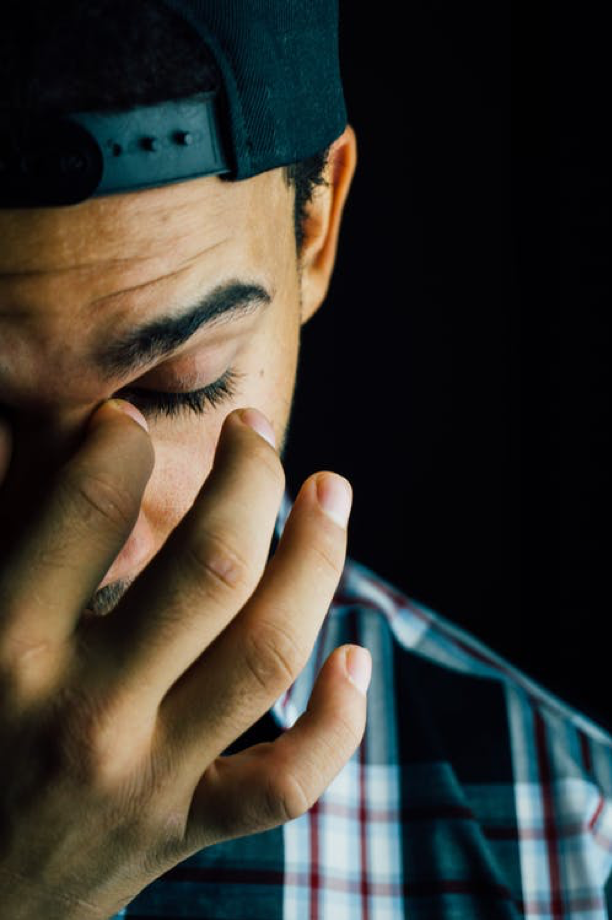Call Today to Schedule an Appointment: 212-319-5282
Best Allergist | Post-Nasal Drip
Do you have post-nasal drip? Our nose produces about one and a half liter of mucus a day. The glands in our nose and throat produce a normal, slimy, fluid substance. This is mucus.
To some, this may sound gross, but in fact, it plays a very important role for us. Mucus acts as a moisturizing layer moistening the sensitive nasal membrane. It helps fight off infections, trap, and destroys foreign particles like bacteria, dust, smoke and viruses, among many others. Not to mention, it helps filter out foreign matters and prevents bacteria and other particles from building up.
Post-Nasal Drip
When our body produces more mucus than normal levels, and in different consistency than normal, it becomes thick and more noticeable. Without even realizing it, you swallow excess mucus at least 2 to 3 times each minute. At other times, it simply drips down your throat; this phenomenon is post-nasal drip.

(Source)
To state it medically, Post-nasal drip is a condition in which a person suffers from mucus buildup and feels mucus constantly running down their throat from their nose. It is such a common condition that no one can claim to have never had it. Everyone gets a post-nasal drip at some point in their lives.
Causes of Post-Nasal Drip
Here are the most common causes for post-nasal drip:
- Allergies
- Sinus infection
- Inflammation of sinuses (sinusitis)
- Viral infection like cold or flu
- Sudden change in your atmosphere or the weather like cold temperature and dry air
- Pregnancy
- Irritants like chronic smoking and intense alcohol intake
- Spicy food
It can also happen as a side effect of certain prescription medications like blood pressure and birth control medicines. Sometimes, it is not the excessive mucus build-up that causes post-nasal drip but the inability of your throat to clear it.
Even though post-nasal drip is not a serious condition in itself, it could be a symptom of something else. That is why, if any one of the causes sounded familiar to you, you should consider booking an appointment with an otolaryngologist. Try to find out the root cause of your condition and educate yourself with its triggers in your case. This will aid you in taking precautionary steps and preventing yourself from letting it happen again.
Symptoms
If you are not sure about the cause but still suspect post nasal drip to be your condition, review the most common symptoms to be sure.
- Constant urge to clear the throat, or swallow
- Cough which is more intense during the night
- Sore, scratchy and constantly itchy throat
- Nauseous feeling form excessive mucus going in your stomach
- Bad breath
Natural Treatments
Serious condition or not, it’s an irritating and very uncomfortable condition nonetheless. The good news is that post-nasal drip is treatable both in natural and medical ways. People who have a firm belief in home remedies usually opt for natural treatment while people who want quick results prefer medical treatments.
1. Steam Inhaling

(Source)
Inhaling steam can work wonders on your mucus membranes. You can do this by putting a towel over your head as you hover over a bowl of boiling water. You can also inhale the steam as you are enjoying a hot or warm cup of any drink like tea or even chicken soup.
2. Hydration
This is probably the most crucial one. Keeping yourself hydrated works not only for post nasal drip but also for your overall body fluid balance. This helps in diluting or thinning out the mucus, making it easier to swallow.
3. Avoid Smoking and Alcohol Intake
Alcohol causes dehydration and infection. Smoking, on the other hand, can badly irritate your nasal mucosa lining, leading to excess mucus production and intense coughing.
4. Sleeping Habits
Sleeping with your pillow slightly elevated can also help prevent mucus collection and promote proper drainage.
5. Salt Water Gargle
Gargling salt water can help in diluting thick mucus that is collected at the back of the throat and helps in killing the irritants that cause this.
When to Seek Medical Help?
If your symptoms continue even after 10 days of home treatment or if you are noticing unusually strong symptoms like mucus with a strong odor, wheezing, or a fever, it’s time to visit a doctor and get medicinal help. Your body may be hinting towards bacterial infection.
Bottom Line
However annoying it may be, Postnasal drip is a benign condition and can be treated easily. But, if it’s accompanied by additional symptoms, an appointment to an allergy specialist may be due.
If you are concerned about a post nasal drip and/or additional symptoms, call today:
Boyan Hadjiev, MD
30 East 40th Street
Suite 1200
New York, NY 10016
212-319-5282
Serving all of New York City and the Tri State Area including Zip Codes: Top Allergist NYC Midtown, Chelsea and Clinton: 10001, 10011, 10018, 10019, 10020, 10036 | Gramercy Park and Murray Hill: 10010, 10016, 10017, 10022 | Greenwich Village and Soho: 10012, 10013, 10014 | Lower Manhattan: 10004, 10005, 10006, 10007, 10038, 10280 | Lower East Side: 10002, 10003, 10009 | Upper East Side: 10021, 10028, 10044, 10128 | Upper West Side: 10023, 10024, 10025
